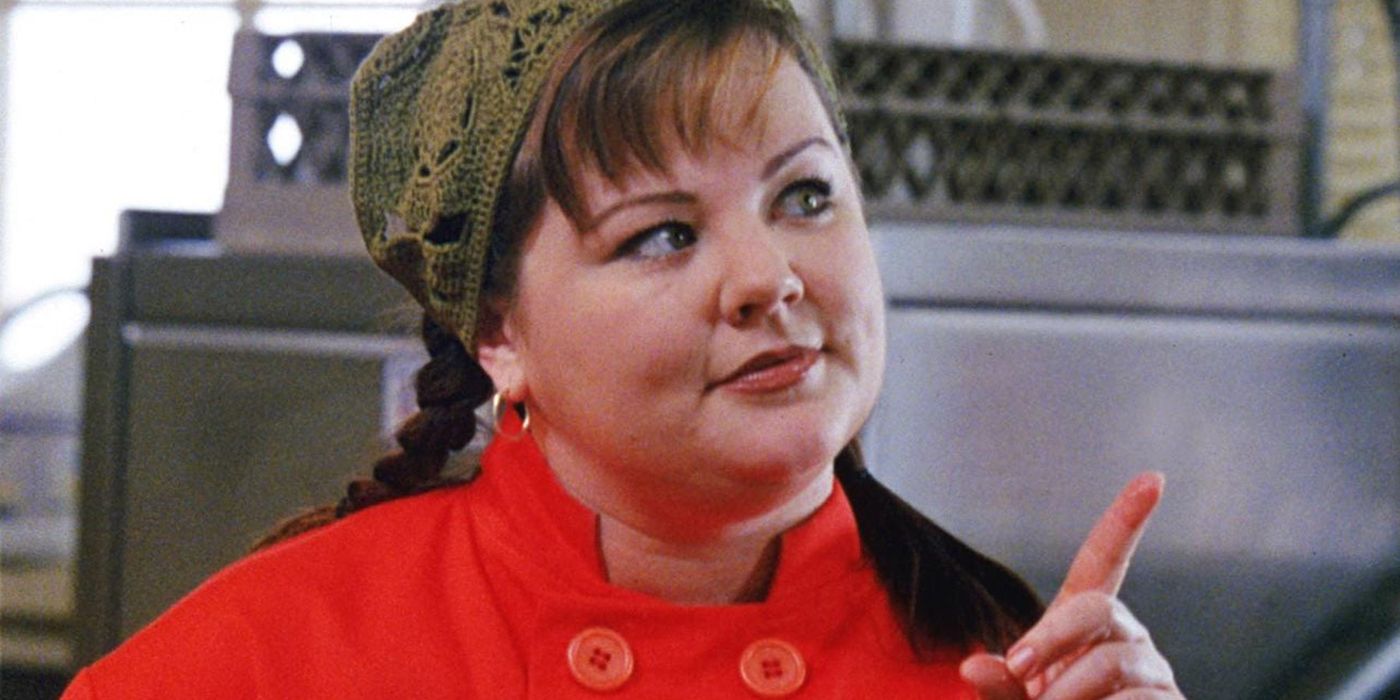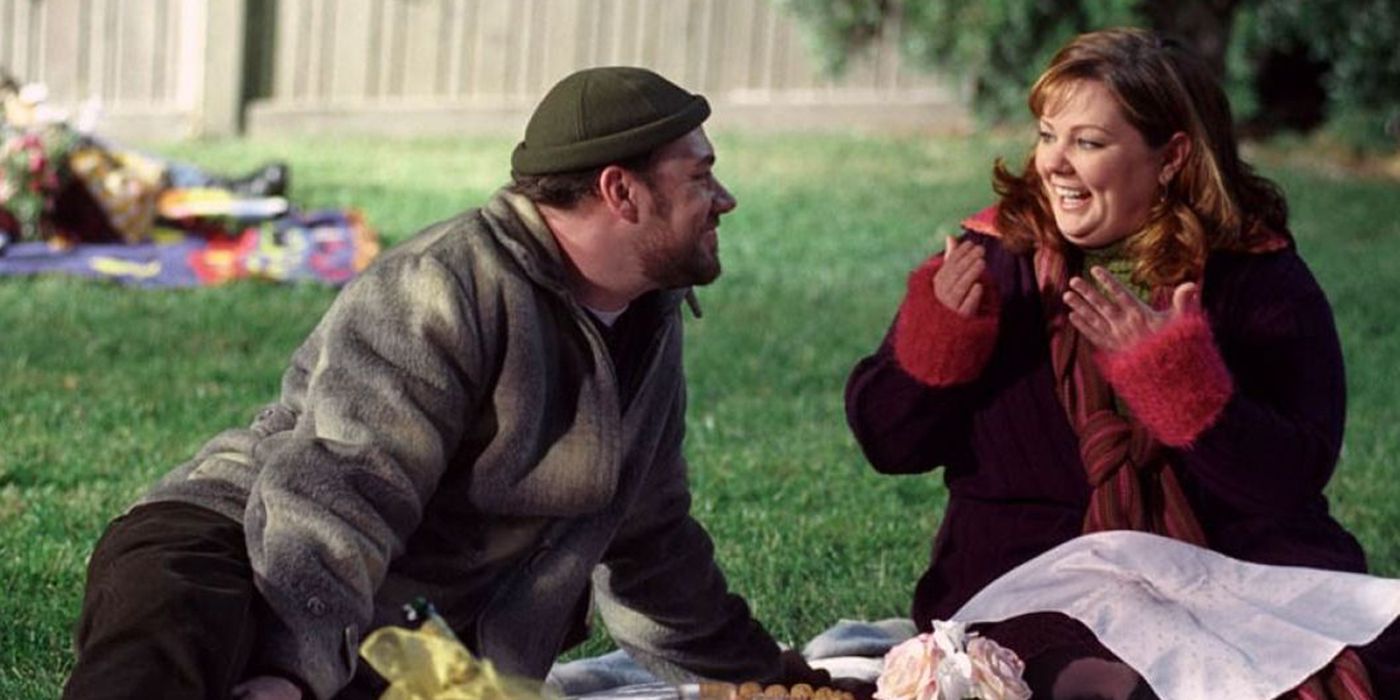After the rampant fatphobia of popular movies and TV series in the '90s, the appearance of Sookie St. James (Melissa McCarthy) in Gilmore Girls felt like a game-changer for millions of people who watched the show -- particularly young people with larger bodies. Although she's a secondary character, Sookie's arc is one of the most stable in the entire series, and her importance can't be ignored.
Sookie St. James is Lorelai's (Lauren Graham) best friend and eventual business partner. She's the head chef at the Independence Inn and later co-owns the Dragonfly Inn with Lorelai. She falls in love with Jackson Belleville (Jackson Douglas) in Season 1, after Lorelai makes some frankly unnecessary comments about Sookie's love life. And then -- miracle of miracles -- Sookie and Jackson stay together and start a family. This shouldn't be revolutionary, but at the time, it absolutely was. In some ways, it still is.
Diet culture is especially prevalent in the west, where fat people are villainized for merely existing: We're more likely to face workplace discrimination and more likely to be neglected by doctors (which leads to a number of deaths). There is a moral panic surrounding fatness that tells us it's wrong to be fat and we should lose weight immediately, ostensibly through dieting -- but 95 to 98 percent of diets fail and furthermore, there is no wrong way to have a body.
However, media would have us believe differently. Millennials grew up in the era of Shallow Hal (2001) and the villainous Fat Bastard from the Austin Powers movies. Small-fat people (who are classified as such because they can usually find clothing that fits at non-specialty stores, even if there is no plus-size section) were relegated to quirky sidekick roles or labeled, from the jump, as the butt of the (usually fat-focused) joke. In the late '90s and early aughts, seeing fat people on screen usually meant listening to everyone in the theater laugh and wondering if we should be laughing, too.
For many of us, Sookie change all of that. Gilmore Girls has a lot of flaws, especially when it comes to character growth and treatment of women -- which is ironic, considering it's a series named for two women. However, Sookie's arc still (mostly) stands the test of time. Her weight is never up for discussion and it doesn't affect her career success or her ability to find love. When she gets married, the relationship lasts and when she and Jackson start building a family, it's a joyous occasion -- even if there are a few dramatic missteps.
In fact, Sookie has the longest romantic relationship on the entire series. She finds happiness and holds onto it, but in a healthy, honest way that allows her to grow and change as a person without ever making her feel like she can't have any of these things because she's fat. She's not relegated to being Lorelai's funny sidekick and she doesn't date a string of men who claim to like her, only to back out once it's time for things to get physical. Sookie has insecurities, like anyone does, but she's also confident, smart, funny, driven, compassionate and talented.
Sookie St. James is a fully-realized, nuanced human being. She's one of the most empathetic fat characters in TV history, not just because she's likeable in a platonic way, but because she's allowed to do and be all the things that fat people -- particularly women -- are regularly told they can't do or be.
She shines, even when she's standing next to her thin best friend -- the protagonist of the show -- and she's allowed to take up space in every conceivable way. That's still incredible to behold, even among the show's numerous storytelling failures and cringeworthy flaws.


